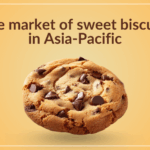More than half (53%) of consumers are actively choosing foods with low or no sugar, while 40% are doing the same for soft drinks.1 In this context, food manufacturers must continue to support this expectation with adapted products without losing sight of the demand for natural products. This is a real challenge, because reducing and substituting sugar is not a simple task. Indeed, it contributes to various organoleptic properties (taste, texture…) in foods. For this reason, yeast extract is a food manufacturer’s ally!
Sugar consumption: a global public health concern
Glucose plays a crucial role in human physiology by maintaining many vital functions including brain and muscle activity. However, overconsumption of simple sugars can lead to metabolic diseases. 8.5% of the world’s population (422 million adults) is diabetic.2
In response to those public health concerns, the World Health Organization (WHO) recommends that a person’s daily simple sugar consumption be reduced to less than 10% of their total daily energy intake (to be adjusted shortly to below 5%). That is to say no more than 25g per day3 for both adults and children. Despite these global health recommendations, the global sugar consumption increased by 1.3% in 2017.4
Collective awareness on the danger of sugar overconsumption has led to new behaviors from consumers and food manufacturers who are being encouraged by country policies or regulations. The number of food & drink products launched with a no, low or reduced sugar claim grew by 95% between 2013 & 2018.5
More and more low-sugar or sweetener-based products are being launched to meet these new customer expectations. Furthermore, food companies are looking for nutritional and cost-effective solutions because sugar reduction represents a global issue. It represents a real challenge for food manufacturers. The various benefits of Biospringer’s yeast-based ingredients enable to create balanced aromatic profiles and/or hide the off-notes caused by the use of intense sweeteners.
Do you want to know more about sugar reduction?
- GlobalData’s Q3 2016 global consumer survey
- World Health Organization, fact sheet on diabetes, November 2017
- World Health Organization, Guideline on sugars intake for adult and children, March 2015
- Worldatlas, Countries That Eat The Most Sugar, 2018
- Mintel GNPD, 2019. Number of products launched with «Low/reduced sugar», «sugar free» or «no added sugar» as the claim between 2013 and 2018









